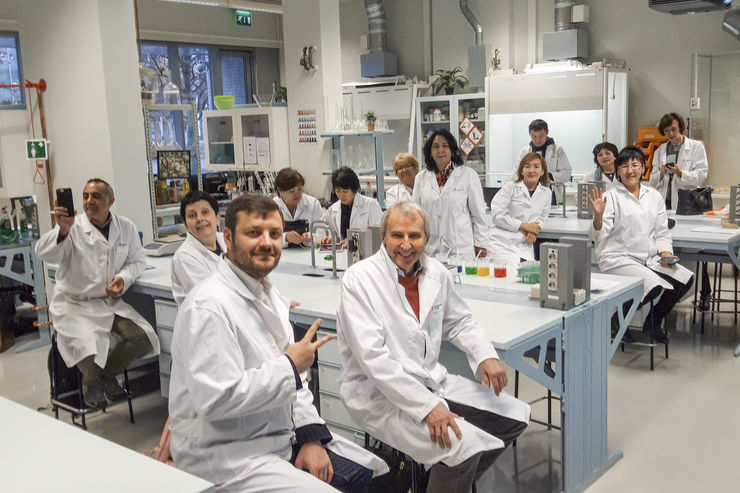
Linkoping University has been awarded principal responsibility for two major Erasmus projects in eastern Europe. One project will develop a new master's programme in mobile app and games development, the other a new syllabus for future teachers of maths, technology and science.
Baku last week, and off again in a few days. The projects are led by Janerik Lundquist who has worked with LiU’s international activities for many years. These two are his fifth and sixth EU projects, but it all started as long ago as the late 1970s, when student exchange with other universities was becoming established.
“Right from the start it was important for LiU have a presence in the wider world: it was not enough to be just a small university in a mid-sized Swedish town”, he says. “As the years have passed, I’ve gained a lot of experience and an extensive international network. It’s extremely rewarding to be involved with the growth of higher education in other countries, in this way giving young people a better start in life.”
The two new projects will take place between 2019 and 2022, and each has been awarded around SEK10 million from the EU. LiU is the principal university in two networks with a total of 20 institutions of higher education, twelve of which are in the “recipient countries”:
Russia, Azerbaijan and Kazakhstan.
The first project, Master’s Program in Mobile Application Development and
Game Design (MAGnUS), is to develop completely new master’s courses in the development of mobile apps and mobile games in Russia and Azerbaijan.
“Both countries have large IT industries, and the need for an educated workforce is enormous. But education has hasn’t kept up with the pace”, Janerik Lundquist tells us.
The second project, Integrated Approach to Stem Teacher Training (STEM), in Kazakhstan and Russia aims to develop new syllabuses for future teachers in maths, technology and science. The current programmes are old-fashioned, and interest in them from both pupils and future teachers is low. Many other countries are facing similar challenges for these subjects.
“One of the things we want is to bring out are the connections between the subjects. How is maths related to physics and technology, for example? At the moment, the fields are separated far too strictly, and the pupils study them in isolation. They don’t get to see how everything is related," says Janerik Lundquist.
"We also want to establish ‘STEM centres’ at several locations, similar to Fenomenmagasinet in Linkoping. This may arouse the interest and curiosity of young people and their teachers for maths and technology.”
Janerick Lundquist says that the participating universities in eastern Europe are generally very interested in gaining knowledge from EU countries. Previous projects he has been involved with have given good results and contributed to major changes in the ordinances that govern higher education in both Armenia and Macedonia.
"But it's important at the same time to bring the correct attitude. We must avoid at all costs appearing to be know-it-alls. We never tell them how they should do things: we just tell them how we do it in Europe and say that they can choose to do it in the same way if they want. This works a lot better."